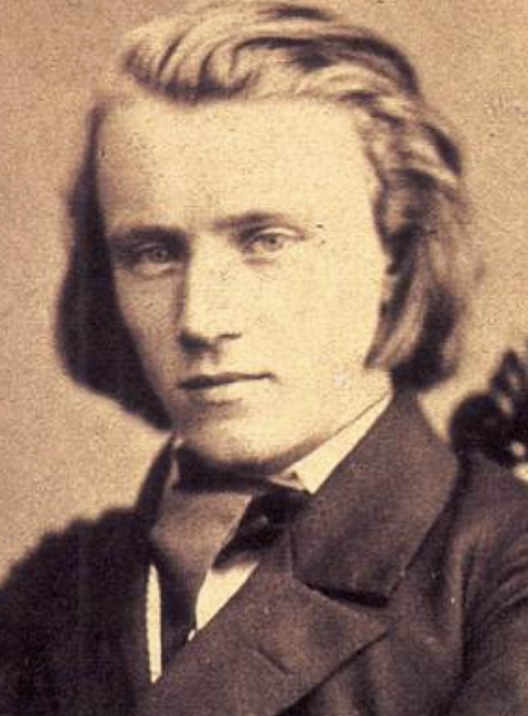On this date in 1833, Johannes Brahms was born into a Lutheran family in Hamburg, Germany. His father gave him his first musical training on the violin and cello. He studied piano at age 7 with Otto Friedrich Cossel, who complained in 1842 that Brahms “could be such a good player, but he will not stop his never-ending composing.” By 1845 he had written a piano sonata in G minor. His parents disapproved of his early efforts as a composer, feeling that he had better career prospects as a performer.
His reputation and status as a Romantic composer and a master of counterpoint, rhythm and meter are such that he is sometimes grouped with J.S. Bach and Beethoven as one of the “Three Bs” of music.
Brahms was well-read in philosophy and science and was an avid hiker who took inspiration from nature. When a conductor requested a greater religious consciousness in the text of some liturgical music, Brahms responded that he would prefer to “dispense with passages like John 3:16” and “gladly omit even the word German and instead use Human.” (Jan Swafford, Johannes Brahms: A Biography, 1997.)
A liberal, Brahms ardently opposed anti-Semitism, was approachable even at the height of his fame, and was always generous with his time and charity. Swafford wrote, “Though he was to be a freethinker in religion, Johannes pored over the Bible beyond the requirements for his Protestant confirmation.” From then on, “Music was Brahms’ religion.” According to Swafford, Brahms was “a humanist and an agnostic.”
He never married although it was obvious he loved children. Scholars have observed that he thought himself as unfit emotionally for marriage. He died of liver cancer at age 63. (D. 1897)
PHOTO: Brahms at age 20.


